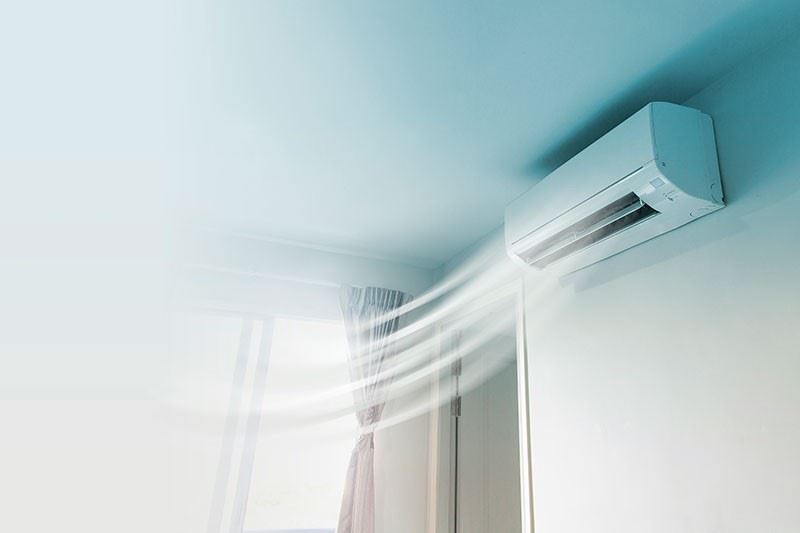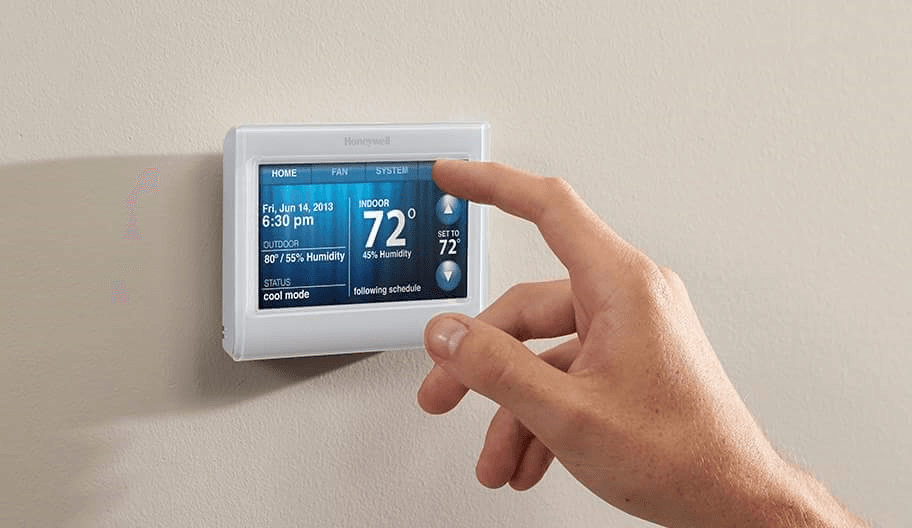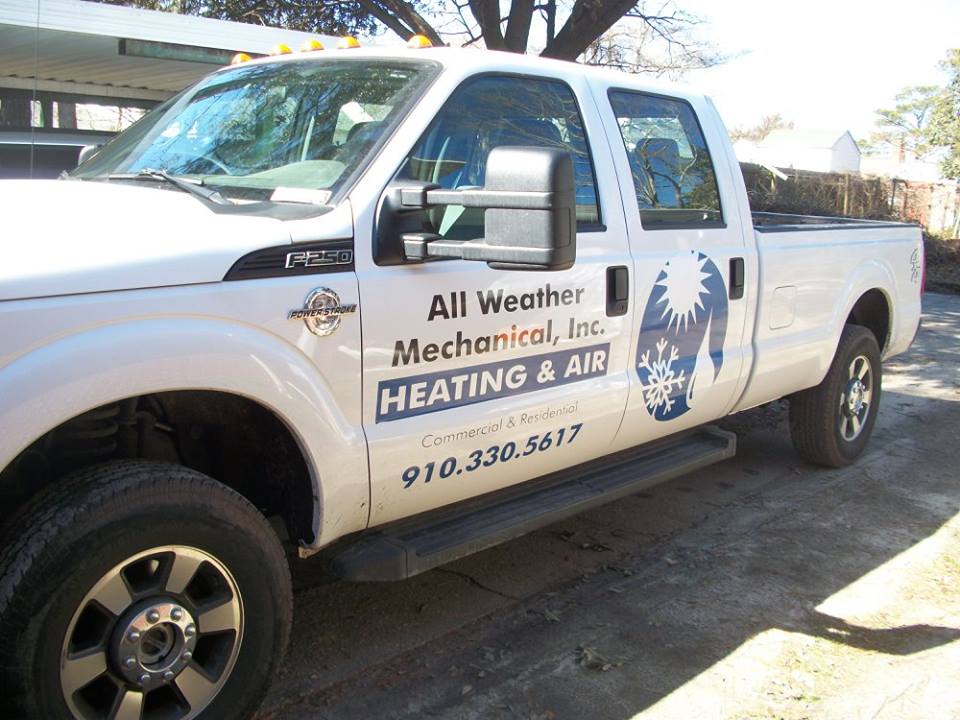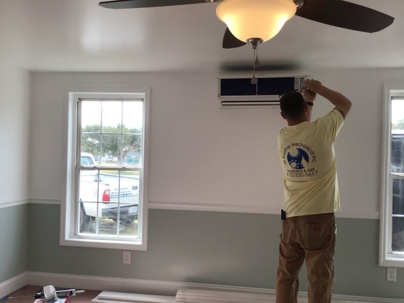Does your home seem to have too much humidity, despite having an air conditioning system that should be keeping the humidity in your space consistent? This can be frustrating, especially during the summer months when the hot East Coast air is right at your doorstep. There could be many different reasons your AC is no longer effective at eliminating excess moisture in your home’s air.
Here’s what might be causing the issue, and who to call for air conditioning repair and maintenance in Jacksonville and surrounding areas of North Carolina.

YOUR AIR CONDITIONER IS TOO SLOW
Your air conditioner may be too slow if it only operates at a single speed. This means that when it turns on, it operates at its maximum power until the room reaches the temperature you’ve set on the thermostat. Then, it shuts off until the temperature rises, when it kicks on again at the same speed. This continues to repeat if you have your thermostat set to AC.
If this is how your air conditioner works, it may mean that your HVAC system isn’t very good at eliminating the amount of humidity in your home. You may notice that the humidity in your house gradually gets higher throughout the day, as temperatures fluctuate inside your home and pockets of hot air increase the humidity beyond what your AC can eliminate by the time it kicks off again.
Air conditioners that have multiple fan speeds that adjust quickly to thermostat adjustments or offer consistent cooling at higher and lower fan speeds typically do a much better job at controlling indoor humidity.
YOU HAVE MORE COOLING POWER THAN YOU HAVE SPACE
When installing an air conditioning system, it is important for the HVAC technician to correctly calculate the amount of cooling capacity you need for your indoor space. If they fail to do this and have installed a unit that is too large or too small, you will notice issues with its ability to bring your home to the temperature you set.
If you have an AC that is bigger than you need, it will have a more difficult job of regulating temperature and humidity indoors. This is because the air conditioner compressor toggles on and off frequently, which means that it doesn’t stay on long enough to remove any moisture from your indoor air. This is the same problem that can be caused by an AC that is too slow, just from another source.
YOUR AC IS OUT OF DATE
An older air conditioning system may not perform as well as it once did as the interior parts experience wear and tear over time. For example, a 5-year-old AC is likely going to be less efficient at cooling your home than it did when it was brand new or even a year old, especially if it hasn’t been properly cleaned and maintained during this time.
This may result in inadequate humidity and temperature control because the unit simply cannot keep up with you AC demands anymore. Eventually, this happens to all HVAC systems. In this case, you may be able to have your AC repaired, but be prepared to invest in a new air conditioning system if yours is very old and stops functioning well.
YOUR THERMOSTAT IS SET INCORRECTLY

As simple as it sounds, poor humidity control in your home may be the result of a mistake the user has made when setting your thermostat. Depending on the type of thermostat you have, it may be difficult to tell the difference between the “AC ON” position and “FAN.”
When you’re using the fan setting, you may see a minor temperature reduction in your home, but not much. You may be tempted to use it on days the weather is relatively mild to get some cooling without the additional cost of running your air conditioner. However, this introduces more humidity into your home because it pulls air in from outside but doesn’t cool it before distributing it throughout a room or your whole home.
Double check your thermostat if you notice the humidity in your house is higher than it should be just to be sure that this isn’t the issue.
YOU HAVE NEGATIVE AIR PRESSURE IN YOUR HOUSE
Surprisingly, negative air pressure and overall outdoor humidity levels play a significant role in your home’s humidity. Air will always try to equalize the pressure between pockets of itself whenever possible. When the outdoor humidity is extremely high, the air pressure outside your home is higher than the air pressure inside it.
This means that the outdoor air will be pulled indoors to try to fill up the negative air space. Anywhere in your home that you have poor insulation, open or cracked windows, or other ways outdoor air can seep inside, it will do so at times when the outdoor humidity is higher. If you have an older or inefficient HVAC system, it may not be able to handle this spike in humidity.
CALL All weather mechanical, INC. FOR QUALITY HVAC MAINTENANCE AND REPAIR

At All Weather Mechanical, Inc., our goal is to ensure your ultimate comfort at home with the highest-quality HVAC equipment and services. We’ve been providing comprehensive HVAC installation, maintenance, and repair for over 25 years and would be proud to serve you.
Our expert HVAC technicians are Mitsubishi Electric Diamond Elite Contractors and are extensively trained to provide high-caliber service that goes above and beyond your expectations.
The post WHY YOUR AC ISN’T CONTROLLING INDOOR HUMIDITY ANYMORE appeared first on All Weather Mechanical Inc..

